JOINT BASE BALAD, Iraq -- After stepping on an improvised explosive device during an ambush Nov. 29, 2006, Spc. Craig Chavez nearly died. His face took most of the blast. He lost his left eye and took shrapnel to the right, rendering him blind. Being evacuated home, he thought he would never see again.
The medical team at the Air Force Theater Hospital at Joint Base Balad, Iraq saved Chavez's life, and removed the shrapnel from his right eye. Eventually he was able to see his world again, and Oct. 11 he was able to see Iraq again.
Operation Proper Exit, a program run by the Troops First Foundation and supported by the United Service Organization, gave Chavez and seven other disabled veterans the chance to return to Iraq for a week to visit the locations where they were stationed, and even fly over the sites where they were injured.
This was the second trip for Operation Proper Exit who brought six disabled veterans back to Iraq in June.
"It's really an idea that came from the Soldiers," said Lindsey Kell, program director from the Troops First Foundation and a Laurel, Md., native.
"They just want to interact with Soldiers and be a Soldier again," she said.
The group landed at JBB Oct. 14 to visit the hospital where most of them were evacuated to before leaving the country for treatment in Germany and the U.S.
A crowd of hospital workers gathered to meet the wounded heroes and thank them for their sacrifices, while the veterans gave thanks to the medical workers.
"My doctors restored my vision," said Chavez, a Temecula, Calif., native. "You guys are the real heroes."
Each of the seven wounded Soldiers and the injured Marine told the story of the day they were injured and the treatment they have received in their ongoing healing process.
"It's a daily struggle, but I'm one of the lucky ones," said Chavez. Many of the servicemembers said they survived attacks that killed their battle buddies.
The group was given a tour of the hospital so they could see the advances that have been made in recent years. They then moved to the Contingency Aero medical Staging Facility, the final stop for wounded Warfighters before they leave the country.
At the CASF the veterans were able to sign the walls of a room called Heroes Haven.
"The first time I was on my back, this time I am on my feet," wrote retired 1st Lt. Edwin Salau, the charitable organizations and veterans' service organizations program coordinator for the Marine Corps Wounded Warrior Program, who lost his leg serving in Iraq.
After visiting the hospital and the CASF the group traveled to the Morale, Welfare and Recreation center to speak to a group of hundreds of servicemembers and civilians about their experiences and their decision to return to the country that took so much from them.
"My family asked, 'why do you want to go back when God gave you a second chance at life,'" said Chavez. "They don't know what it's like. It's a different Iraq and it's great to see that."
The crowd was emotional as one Soldier, who said she was friends with the Solider killed and several injured in the recent helicopter crash at JBB. The Soldier wanted to know what her injured battle buddies would want to hear from her when she called.
"Let them know they're still part of the team," said Salau, a Stella, N.C., native. "In six months their phone is going to stop ringing," he said, "leave here with the reminder that you're not going to let that happen."
Salau said even after the military paychecks stop and the treatment stops, a big part of the military is still with veterans.
"The warrior ethos doesn't stop," he said.
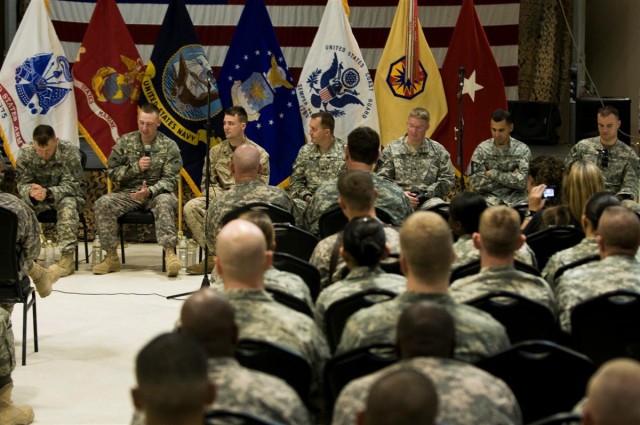
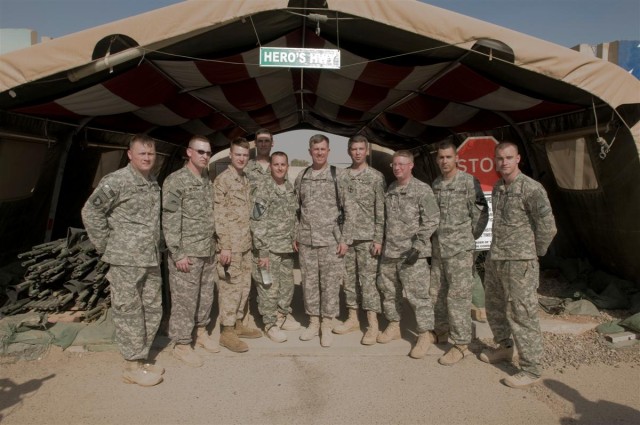
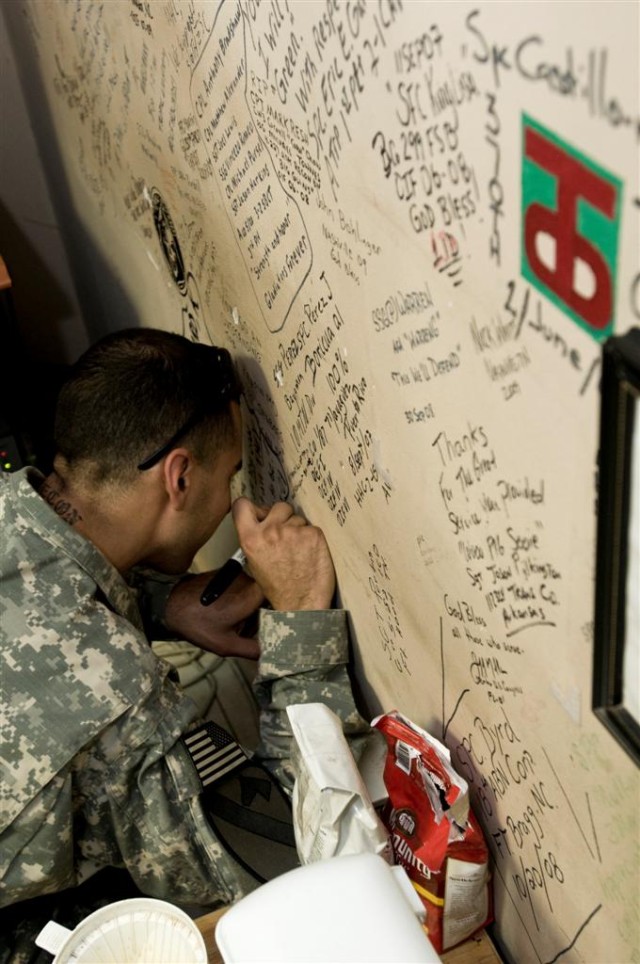
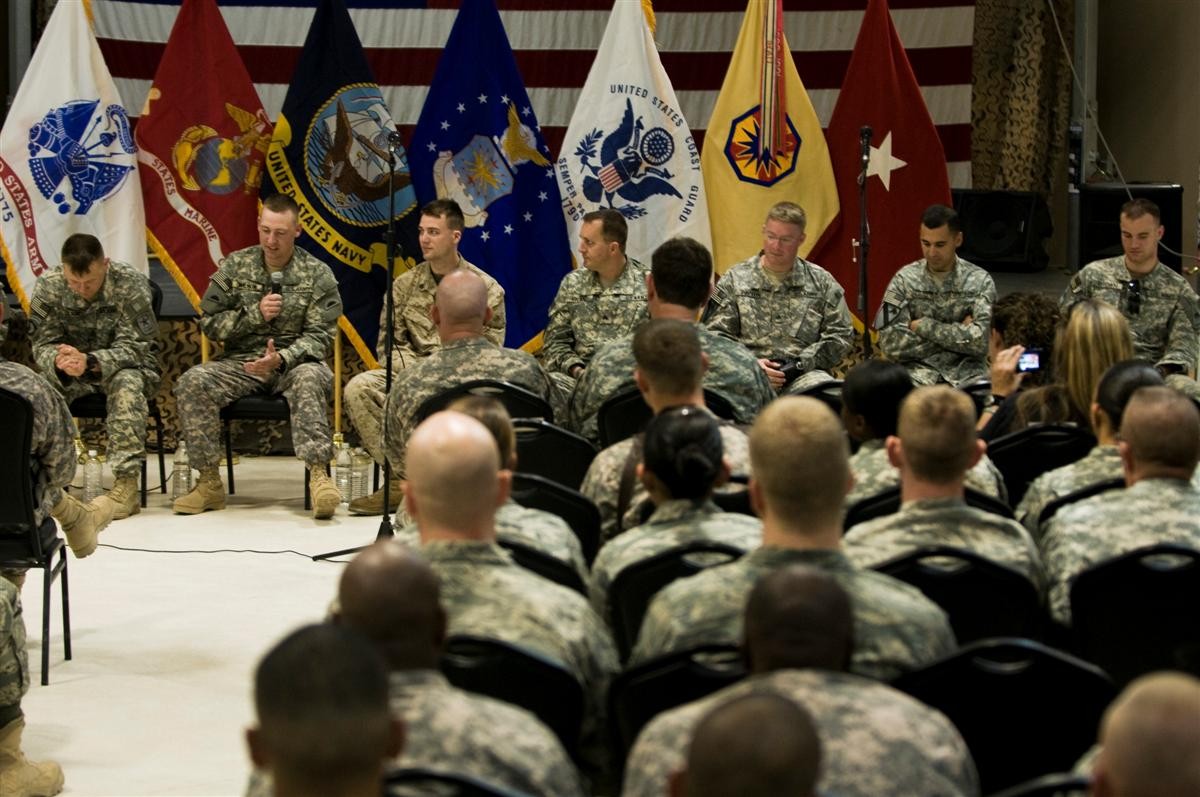
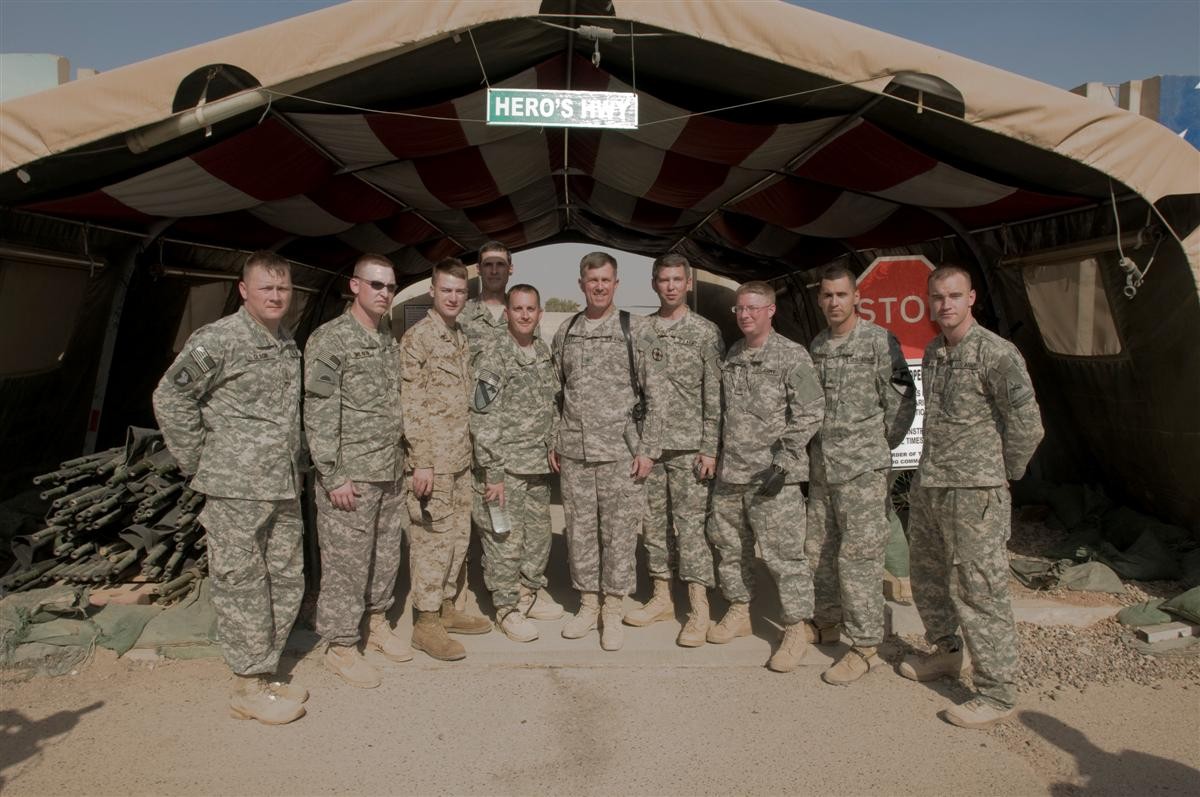
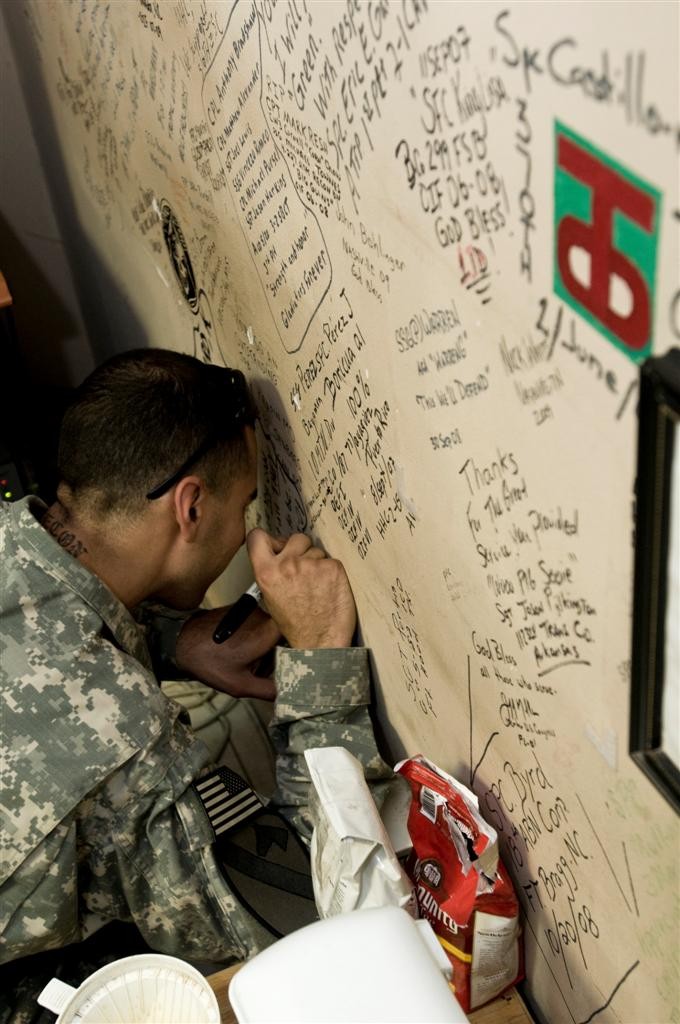
Social Sharing